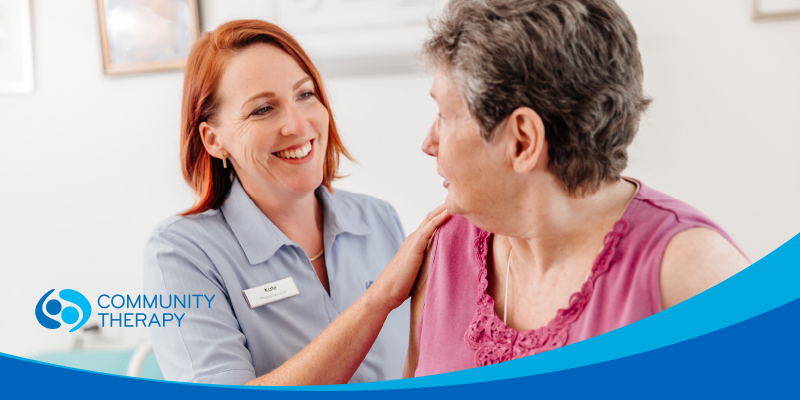As an NDIS registered organisation, Community Therapy works collaboratively with Support Coordinators from many different NDIS organisations in our region.
We understand that NDIS Support Coordinators work best with service providers who are reliable, experienced and passionate about working with people with disability.
Coordinators Establishing if Community Therapy is an ideal provider
We respect and advocate for NDIS participants to have wonderful NDIS support coordinators to help participants choose the right clinician and organisation for the participant.
Upon receiving an enquiry, our focus is to ensure we’re an appropriate healthcare provider for that person, we will ask questions to determine this, we are also able to:
- offer a one-on-one phone conversation with the prospective participant in order to answer any additional questions they may have
- provide an informative PDF brochure outlining our Physiotherapy, Occupational Therapy and Dietitian services for NDIS participants.
NDIS Registered in 2016, SAI Global Certified in 2019
In addition to being a well-established health care provider in NSW, Community Therapy is also certified by SAI Global. Our NDIS processes have been certified against the NDIS practice standards, so NDIS Support Coordinators may feel confident recommending our services to participants.
Our systemised business helps our work with partner organisations to ensure all compliance standards are met, particularly in relation to client and staff safety.
Creating an NDIS Improved Daily Living Plan
For structuring appropriate Physiotherapy, Occupational Therapy and Dietetics into a NDIS plan, we firstly start by conducting an initial assessment.
Typically we obtain preliminary information such as previous medical reports or NDIS plan details before a first meeting so that we are well positioned to assist a new client.
Our initial consultation will include revisiting these agendas, either through a verbal or physical assessment, which may involve:
- physical assessments (namely strength & balance) to determine Physiotherapy requirements
- environmental assessments to determine Occupational Therapy requirements
- nutrition assessments to determine Dietitian requirements.
We then plan collaboratively with the participant to determine their goals and timelines. This will include formalising a service agreement to stipulate how many hours of the NDIS plan will be required.
Freedom to Choose the Right Clinician
A key strength of the NDIS is that it celebrates the autonomy of its participants: the power, choice and control is in the participant’s hands.
Clients may provide feedback to us at anytime, for example, a client may say “I would like to continue on with your services, but I actually don’t feel comfortable with a male Physiotherapist so I would prefer to be cared for by a female Physiotherapist.” We always do our best to assist, and to ensure that the client is being listened to and their preferences respected.
How does Community Therapy integrate scheduling and communication systems with NDIS Support Coordinators?
Often this is through a combination of email and phone contact: dates and times for visits are emailed to relevant parties, while phone calls are used for more important clinical matters. Following a treatment session, written reports can be provided to the support coordinator (with the participant’s consent).
Data systems are not integrated between partner organisations because participant privacy is an important consideration.
Does Community Therapy welcome feedback from Support Coordinators?
Community Therapy values all types of feedback and we capture it in many different ways. To make sure all of our Support Coordinators and participants feel comfortable giving us feedback we outline this in our service agreement, in our consumer handbook, as well on our website.
We love to receive both positive and constructive feedback because we embrace a qualitative improvement system where all types of feedback can lead to the improvement of our services.
